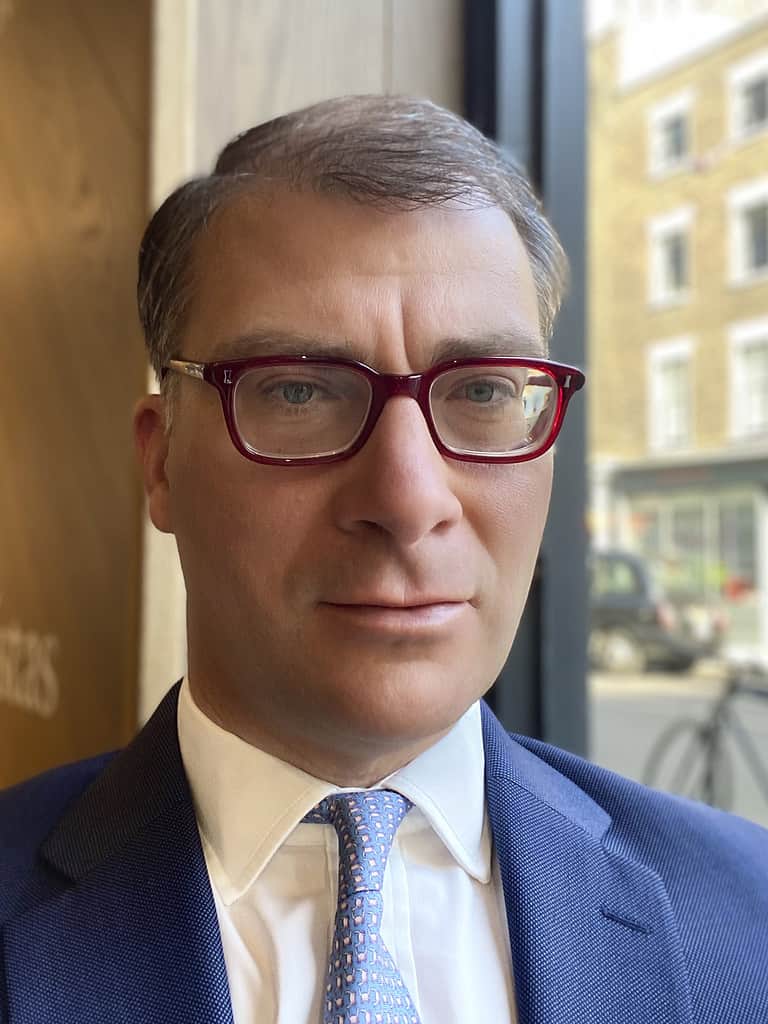Dubai and the other emirates have made globalization work in the Gulf by leveraging oil revenue to create a more open, diversified economy.
Good governance, political foresight, and fortuitous geostrategic developments have produced extraordinary growth in Dubai and the other states of the United Arab Emirates (UAE) since the Covid-19 pandemic. But does this federation has what it takes to sustain its newfound role as a global trade, finance and tourism hub amid increasing regional competition, the looming energy transition and the push-and-pull of global politics?
Close observers are optimistic that, with the right doses of wisdom and luck, Dubai and the rest of the UAE can continue riding the crest of the current wave.
“Dubai has done an extremely good job at marketing itself,” says Oliver Cornock, editor-in-chief at consultancy Oxford Business Group (OBG). “It has complemented that with a very clear open-for-business set of policies,” including free zones enjoying significant tax and foreign ownership advantages, ease of getting in and out and “increasingly, an environment where people want to live, work and play.”
Riding High
According to government data obtained by Bloomberg, nearly 412,000 business licenses were active in Dubai last year, 30% more than during the previous year and a whopping 75% rise from 2021. Last year also saw the largest volume of new company registrations in the UAE’s preeminent special economic zone, the Dubai International Financial Centre (DIFC): 1,451 more, for a 34% year-on-year (YoY) increase, according to the DIFC.

Overall, Dubai welcomed more than 100,000 new residents in 2023, following an influx of some 71,600 in 2022, according to figures from Dubai Statistics Center. The arrivals are propelling a dramatic rise in real estate prices, which have soared to an all-time high.
Dubai’s numbers stand out, but positive trend lines are visible in the other six UAE emirates, in particular Abu Dhabi and Ras Al Khaimah. The Abu Dhabi Department of Economic Development reported in January that active business licenses increased nearly 11% from 2022 to 2023, for a new total of more than 143,600. This helped drive 8.6% non-oil economic growth during the first nine months of last year, according to the Statistics Centre–Abu Dhabi.
Meanwhile, the Ras Al Khaimah Tourism Development Authority reported the sector’s best year ever in 2023, with a 24% jump in international arrivals over 2022 and a record 1.2 million overnight visitors, up 8% on an annual basis.
According to the UN Conference on Trade and Development, foreign direct investment (FDI) inflows across the UAE rose 10% YoY in 2022, reaching nearly $23 billion, while global FDI fell 12%.
“The pandemic was a very important stress test for many economies,” says Bernardo Bortolotti, executive director of the Transition Investment Lab at New York University in Abu Dhabi. “The UAE has really proven an amazing degree of resilience.”
Over some five decades, forward-looking leadership has managed to steer the federation from its formation in 1971 to oil juggernaut to regional financial center. Oil-related revenue filled public coffers and propelled the rise of a sophisticated financial management industry.
According to Global SWF, as of March 2024, the Abu Dhabi Investment Authority is among the top 10 largest sovereign wealth funds in the world by AUM. The Investment Corporation of Dubai, Mubadala, and Abu Dhabi Developmental Holding Company are in the top 50, followed by Emirates Investment Authority. An abundance of foreign players rounds up the UAE’s highly developed financial landscape.
Pandemic And Recovery
The Covid-19 pandemic hit the UAE hard. Outward-facing, trade-oriented Dubai saw its GDP shrink nearly 11% in 2020 while the federation’s national economy contracted by some 5%.
Still, there were silver linings. “Dubai was quite aggressive in the vaccination program,” says James Swanston, an economist specializing in the Middle East and North Africa at Capital Economics. “It very quickly approved the big vaccines … and kept up very stringent lockdown measures.”
Once they relaxed social-distancing measures and opened the economy, the authorities solved two problems at once by making Dubai an international vaccination destination. New visa options targeting wealthy investors, digital nomads, and even affluent retirees are adding new, longer-term residents to the mix.
As the world emerged from the pandemic, the UAE also found itself benefiting from geopolitical developments, chiefly Russia’s war in Ukraine and mounting tensions between the US and China. “The UAE has been able to keep good relationships with most parties,” says Bortolotti.
The Road Ahead
Questions remain whether Dubai, with nearly 3.7 million people, can keep on such a successful path. Its desert climate requires enormous resources to make life comfortable. Climate change, combined with plans in Dubai to increase the number of residents by 2.1 million in the next 16 years, could put the environment at risk of serious degradation.
But Bortolotti expects the UAE’s tight oversight of immigration to provide some comfort.
“What worries me is overly rapid urbanization, absent the right institutions and regulations in place,” he says. “But I’m not sure [this] could ever take place in such a closely regulated country as the UAE, where every single immigrant comes with a job.”
Global efforts to reduce carbon emissions—strengthened by an agreement by nearly 200 nations at the latest UN Climate Change Conference, held in Dubai in December—also loom over the local economy. A collapse in the price of oil amid the energy transition would impact Abu Dhabi and other emirates more directly than Dubai, which is less dependent on energy. But the whole federation would struggle with declining government revenue and the resulting strain on the largesse it shows its citizens.
Nevertheless, Swanston argues that the UAE’s low energy production costs, strong public finances and rapid diversification away from the energy industry put it in a relatively good position to sustain reduced oil prices, even in the long term.

extremely good job marketing itself.
A Complex World
More and more neighboring countries, meanwhile, are pushing to emulate the UAE’s, and particularly Dubai’s, economic model. Saudi Arabia has been directing enormous firepower toward establishing itself as a global business destination, including its effort to poach global firms’ regional headquarters.
“Ten to 15 years ago, people would often set up business in Dubai in a free zone to do business with Saudi Arabia, because at the time, the environment was not quite conducive,” says the OBG’s Cornock. Although that’s changing, he says, Dubai still “has that first-mover advantage.”
A resolution of the war between Russia and Ukraine, however distant, could see many of the estimated tens of thousands of Russians who have flocked to the emirates return home. Real estate prices would likely take a hit, threatening the health of heavily indebted property and hospitality companies and their government-linked sponsors. “It’s a much lower risk than even three years ago, but a looming risk within Dubai,” Swanston cautions.
Taking the long view, Bertolotti suggests that the global landscape now taking shape, with the rise of Asia an indisputable fact and that of Africa just around the corner, will only buttress the position of Dubai and the UAE at the center of global politics and the world economy.
“I see at the very global level an incredible reallocation of economic and political power in the next decade,” he says. “New economic and financial realities will come to the fore, and the location advantage that the UAE has, especially in terms of its exposure to the so-called global south, is unique.”
[ad_2]
Source

